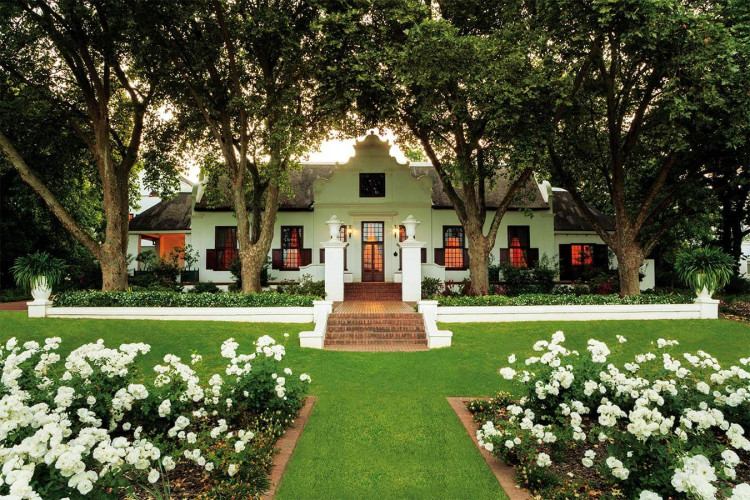In 2021, Nederburg became the first South African winery in the German food retail sector to join the ranks of WWF Conservation Champions.





Nederburg - WWF Conservation Champion
The story of Nederburg Estate begins in 1791, when the German emigrant Philippus Wolvaart fell in love with the beautiful landscape of the Western Cape and purchased about 50 hectares of land near the small town of Paarl. So the winery looks back on a long tradition! Starting with the historic Manor House, which has been the heart of the estate since 1800 and is one of South Africa's national monuments,
Nederburg has reinvented itself again and again over the past centuries - and is today not only one of the most important wineries in South Africa, but also the most awarded.
One reason for the high quality of the wines is the favored landscape at the Cape, where the best conditions for viticulture have always prevailed and, with 95% of all cultivated areas in the country, almost all South African viticulture is at home. But it is not only these classic cultivated landscapes that characterize this region. It is also home to two large nature reserves: the Succulent Karoo and the Cape Floral Kingdom, two unique landscapes and habitats, true hotspots of biodiversity.

Since its founding in 1961, WWF has been dedicated to the protection of this South African natural heritage, as one of the best known and most respected independent conservation organizations in the world. In this context, the WWF also supports and advises committed winegrowing businesses on their way to more sustainable agriculture, for example through a program for the protection of biodiversity and water bodies. Nederburg was first recognized for its environmentally conscious viticulture in 2011 and included in the WWF Biodiversity and Wine Initiative (BWI). Since then, the team around Managing Director Niël Groenewald has been working continuously to further improve its own environmental performance - and with success! This year, for the first time, the winery was included in the ranks of the WWF Conservation Champions. In close exchange with leading environmentalists in the region, the WWF honors with this award those wineries that commit to biodiversity-friendly and regenerative cultivation methods, preserve natural areas and save valuable resources such as water and energy.
» »It is very encouraging to have reached the highest level of WWF recognition, Champion status.« «
Niël Groenewald and his team at Nederburg are not alone in this concern, by the way. In the meantime, more than 90% of South African winegrowing operations rely on environmentally friendly and resource-conserving cultivation methods, as shown by the IPW sustainability seal. South African viticulture thus enjoys great international recognition, especially for its work in balancing nature and agriculture.